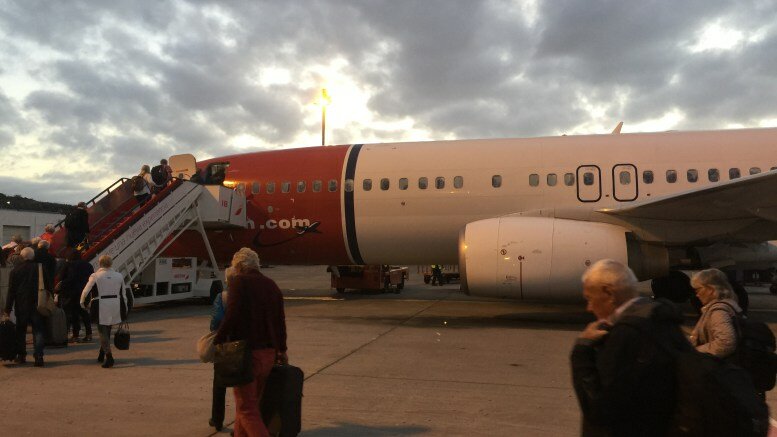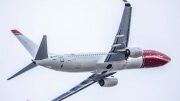Norwegian reported strong passenger growth as it carried almost 3.5 million passengers in September. The total number of passengers increased by 9 percent compared to the same month previous year.
Norwegian carried3,446,854 passengers in September, an increase of 281,823 passengers (9 percent) compared to the same month last year. The total traffic growth (RPK) increased by 31 percent this month, driven by a 32 percent capacity growth (ASK). The load factor was 88.8 percent on the entire route network and 92.4 percent on Norwegian’s long-haul routes.
In general, the yield development is positive, but is negatively affected by the Swedish passenger tax and the fact that company operates more longer flights than the same time previous year. As the revenue per passenger kilometer is lower on longer flights, the company’s total yield falls as the share of long-haul flights increases.
In September, The International Council on Clean Transportation (ICCT) named Norwegian the most fuel-efficient airline on transatlantic routes for the second time.
“We are very pleased that an increasing number of passengers choose Norwegian for their travels, especially business passengers. I’d particularly like to point out our long-haul routes where the demand is high and continues to increase. The recognition from ICCT is truly the highest form of industry praise and proves that our investment in brand new planes reduce our environmental footprint. New aircraft is win-win for our customers, the environment and the company,” said CEO Bjørn Kjos of Norwegian.
Norwegian operated 99.4 percent of the scheduled flights in September, whereof 80.2 percent departed on time, up 2.3 percentage points compared to the same month last year.
Norwegian’s fleet renewal program continues in 2018. The company took delivery of two Boeing 737 MAX 8 and one Boeing 787-9 Dreamliner this month. In total, Norwegian will take delivery of 11 Boeing 787-9 Dreamliners,12 Boeing 737 MAX 8 and two Boeing 737-800 aircraft this year. With an average age of only 3.7 years, Norwegian’s fleet is one of the world’s “greenest” and most modern. The single most important action an airline can take to reduce its environmental footprint, is to invest in new aircraft and new technology.




